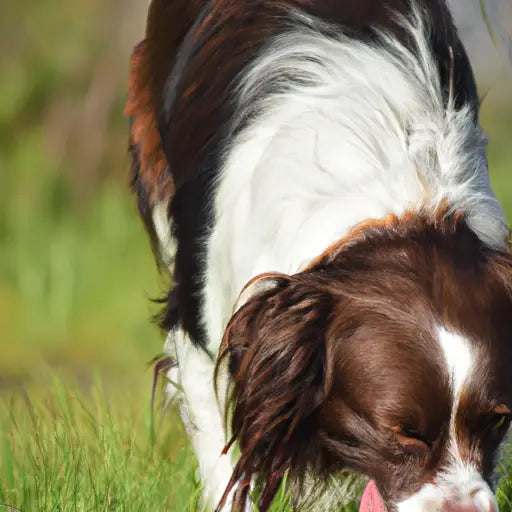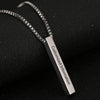My dog eats grass: Why and what to do?
Have you ever wondered “why does my dog eat grass” or “why does a dog eat grass”? Although this may seem strange to some owners, it is a fairly common behavior among our four-legged friends. In this article, we'll explore the reasons behind this behavior, from ancestral habits to digestive needs, and how to fix it.
Key points to remember:
- Dogs may eat grass for a variety of reasons, ranging from simple taste preference to digestive needs.
- It is essential to monitor how often and under what circumstances your dog eats grass.
- If your dog regularly eats grass and vomits, it is advisable to consult a veterinarian.

Origins of behavior
An ancestral habit
Dogs' ancestors, wolves, had a varied diet that included not only meat but also plants, fruits, berries and grass. It is therefore possible that our dogs have inherited this attraction to grass.
Food craving
Some dogs may simply like the taste of grass. This phenomenon, called “food craving,” refers to an intense need or desire to consume a certain food. If your dog only eats grass occasionally, there is usually no cause for concern.
https://www.youtube.com/watch?v=yKZwEmzlnm4

Medical reasons
Make yourself vomit
If a dog is experiencing digestive discomfort, he may eat grass to induce vomiting. This is a way for him to eliminate what could be causing this discomfort.
Underlying health conditions
A dog that frequently eats grass could suffer from health problems such as kidney or liver problems or parasitic infestations. In such cases, veterinary consultation is essential.
https://www.youtube.com/watch?v=8Vs94Gbor8k

Pica: a behavioral disorder
Pica is a behavioral disorder where the dog consumes non-food objects, such as stones, paper or plastic. If your dog eats grass in large quantities on a regular basis, this could be a sign of pica.
Table: Understanding your dog's behavior
| Behavior | Possible explanation | Recommended action |
|---|---|---|
| Occasionally eats grass | Taste preference | No action necessary |
| Frequently eats grass and vomits | Digestive problem | Consult a veterinarian |
| Eat other non-food items | Behavioral disorder (pica) | Consult a veterinarian |
https://www.santevet.com/articles/pour-quelles-raisons-mon-chien-mange-de-l-herbe
The benefits of grass for dogs
Although ingesting grass may seem concerning to some owners, it is essential to understand that it can also have benefits for your dog.
Fiber and nutrients
Grass contains fiber and nutrients that can benefit your dog's digestion. Fiber can help regulate intestinal transit and prevent constipation.
Natural cleaning
Chewing grass can also help clean your dog's teeth and reduce plaque buildup. It’s a natural way for him to take care of his oral health.

Risks associated with consuming weed
It's also crucial to know the potential risks associated with eating weed so you can make the best decisions for your dog's health.
Chemically Treated Herbs
If your dog eats grass in a park or garden that has been treated with pesticides or herbicides, it may be harmful to him. Always make sure you know the origin of the grass your dog consumes.
Parasites
Grass can also harbor parasites such as intestinal worms. If your dog regularly eats grass, it is recommended to deworm it regularly.
https://www.youtube.com/watch?v=sWp4USaNH1I

How to manage your dog's behavior?
If you are concerned about your dog eating too much grass, there are several steps you can take to manage this behavior.
Environmental enrichment
Provide your dog with toys and activities to keep him entertained and reduce his desire to eat grass out of boredom.
Veterinary consultation
If you notice sudden changes in your dog's behavior or if he exhibits symptoms after eating grass, it is essential to consult a veterinarian.


































